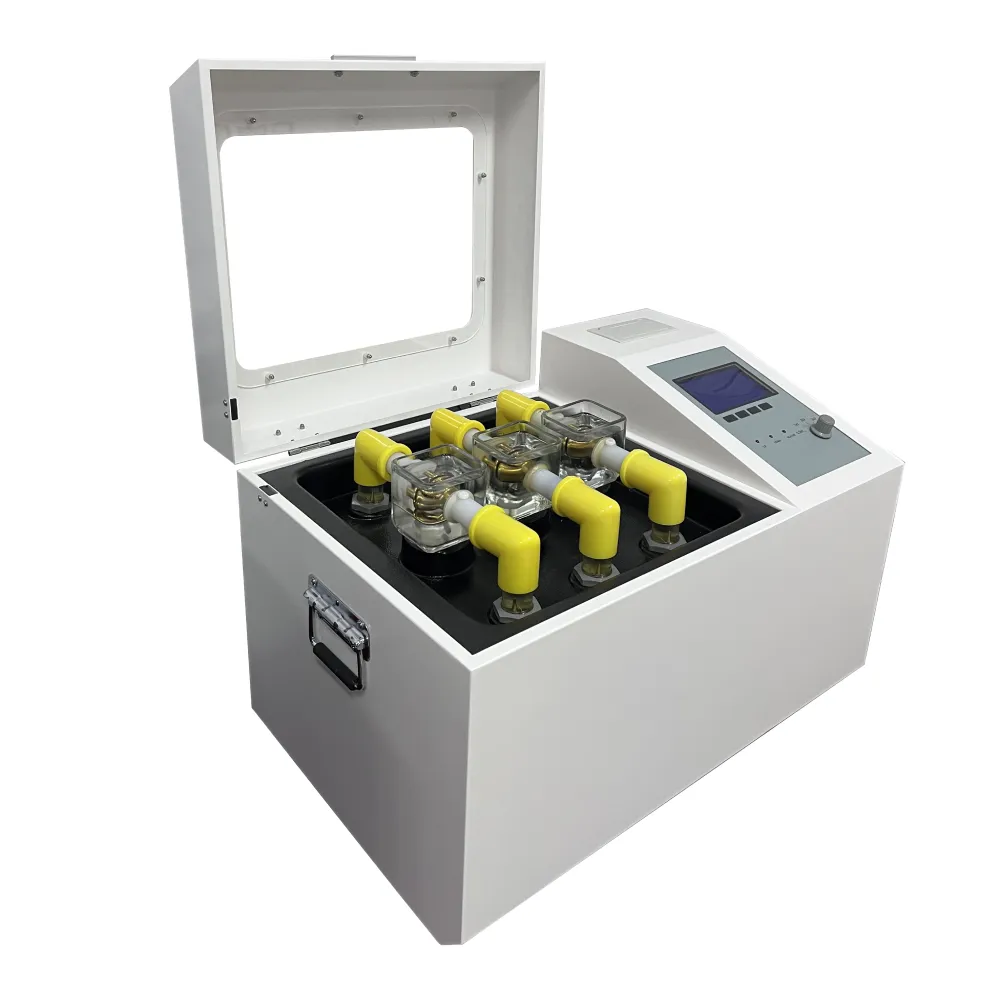 English
English


oil viscosity tester
The Importance of Oil Viscosity Tester in Modern Industries
In today's fast-paced industrial landscape, the performance of machinery and engines can heavily depend on the properties of lubricants. One critical property of these lubricants is viscosity, which measures a fluid's resistance to flow. This article aims to explore the significance of oil viscosity testers and their role in various industries.
Oil viscosity testers are instruments designed to measure the viscosity of lubricants, which can include motor oils, greases, and hydraulic fluids. The viscosity of an oil is essential because it dictates how well the oil will perform under different temperature and pressure conditions. Inadequate viscosity can lead to increased friction, wear, and eventually, machinery failure. Therefore, ensuring the proper viscosity is vital for the longevity and efficiency of industrial equipment.
Understanding Viscosity
Viscosity is affected by temperature; as temperatures rise, most oils become less viscous, while cooling often increases viscosity. This intrinsic property makes precise testing paramount, especially in automotive and aviation sectors where oils must perform optimally across a range of temperatures and operating conditions. Oil viscosity testers provide accurate readings that help manufacturers formulate oils that meet specific performance standards.
Types of Oil Viscosity Testers
There are several types of oil viscosity testers used across different applications, including kinematic and dynamic viscometers. Kinematic viscometers measure the time taken for a predefined quantity of oil to flow through a calibrated tube under gravity, providing insight into its flow characteristics under different temperatures. Dynamic viscometers, on the other hand, measure the resistance of the oil to flow when subjected to an external force, evaluated under controlled temperatures.
oil viscosity tester

Recent advancements have also facilitated the development of automated viscosity testing machines that offer quick and accurate results, reducing the risk of human error and increasing throughput. These advancements are crucial in industries where time is money, such as in automotive manufacturing.
Applications in Industries
Oil viscosity testers are pivotal in various industries, ensuring that lubricants maintained the required performance levels. In automotive manufacturing, viscosity testing helps in the development of engine oils that enhance fuel efficiency and reduce emissions. In aviation, it is critical for maintaining the operational integrity of aircraft engines at extreme altitudes and temperatures.
Moreover, in the food processing industry, viscosity testing is essential to ensure that lubricants used in machines are food-grade and compliant with safety regulations. Similarly, in pharmaceuticals, oil viscosity testers help manufacturers ensure that oils used in production processes maintain consistent quality and performance standards.
Conclusion
The oil viscosity tester plays a crucial role in maintaining machinery efficiency, optimizing lubricant formulations, and ensuring safety standards across multiple industries. As technology continues to evolve, the accuracy and efficiency of these testers will improve, further emphasizing their importance. Regular testing of oil viscosity can prevent costly downtimes and enhance operational reliability, making it an indispensable tool for manufacturers and engineers alike. In an era where efficiency and sustainability are key, the significance of oil viscosity testers cannot be understated. Their ability to ensure optimal lubricant performance directly contributes to the longevity of engines and machinery, making them a cornerstone of modern industrial practices.
-
Differences between open cup flash point tester and closed cup flash point testerNewsOct.31,2024
-
The Reliable Load Tap ChangerNewsOct.23,2024
-
The Essential Guide to Hipot TestersNewsOct.23,2024
-
The Digital Insulation TesterNewsOct.23,2024
-
The Best Earth Loop Impedance Tester for SaleNewsOct.23,2024
-
Tan Delta Tester--The Essential Tool for Electrical Insulation TestingNewsOct.23,2024





